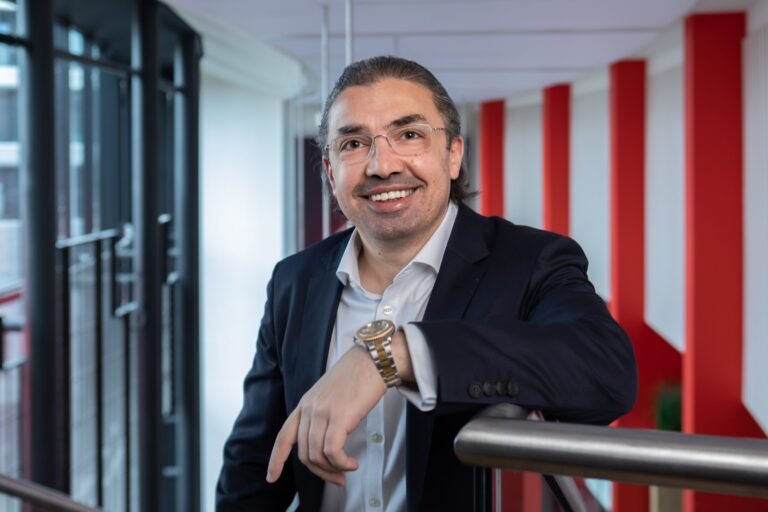Ahmed Essam, Vodafone’s UK CEO, welcomed a distinguished room of guests from the charity and political sectors as the company introduced its Vodafone Essentials Broadband social tariff.
Speaking on the launch, he said that, “This is an important day for us as we announce our social broadband tariff – the cheapest on the market,” People can now get social broadband and mobile for just 72p a day.”
He also spoke about Vodafone’s offer of one year’s free broadband for small businesses, and how the everyone.connnected campaign to offer free SIMs to a million digitally disadvantaged people by the end of 2022 had passed the 750,000 milestone.
“Connectivity is an essential these days, people struggle without it,” said Ahmed. “You’re excluded from life.
“So bringing everyone with us on this journey and not leaving anyone behind is really important for us, and the UK.”
A million families at risk of falling the wrong side of the digital divide due to rising cost of living
To help, Vodafone launches most affordable social broadband tariff on the market and announces one-year free broadband for UK small businesses.
The Trussell Trust’s Danni Malone reinforced the point, saying: “One-in-four people coming to our food banks have no internet access. It should be considered an essential.”
READ ALSO:
NTT by Cisco launches 360 Observability to optimise application performance and reduce multi-cloud and hybrid IT complexity
TSMC Taiwan’s Founder planning advanced chip production in US Arizona
Here is what Apple New Launched Emergency SOS feature Means
David Buttress, the Government’s Cost of Living Tsar, agreed, saying: “We should make connectivity universally accessible and pay for it. There’s a lot of ignorance about how essential it is.”
Julia Lopez MP, Minister of State at the Department for Digital, Culture Media & Sport, said Vodafone’s new social broadband tariff was “fantastic news”, and praised the way the company kept the UK connected during Covid and was helping Ukrainian refugees with free SIMs as part of its everyone.connected campaign.
Affordability
All present in the room agreed that the cost of living crisis was deeply serious and having a profoundly negative impact on many people’s lives – a view borne out by research.
Ben Shimson, managing partner at research consultancy Britainthinks, reported that 90% of people they interviewed were worried about the cost of living, with a third feeling pessimistic about being able to make ends meet. An unexpected £500 bill would be unaffordable, 44% of interviewees said.
Affordability was key, most agreed, with Helen Milner OBE, Group CEO of Vodafone charity partner The Good Things Foundation, arguing that VAT [Value Added Tax] on social tariffs should be scrapped. Ahmed concurred.
With about 1.5 million UK households still lacking any access to the internet – and more than five million people who have never been online according to Office for National Statistics figures – schemes like Vodafone’s Tech Appeal to distribute pre-loved devices to those in need, and its donation of free SIMs, were welcomed as important by those present.
Lynn Perry MBE, CEO of Barnardo’s, said: “Through our partnership with Vodafone we distributed thousands of devices – and the data needed to use them – to digitally excluded families.
“The relief these families felt was so tangible – it was about inclusion and being able to continue education at home.
“Not having access to digital connectivity and data does result in further exclusion, so I want to say thank-you to Vodafone.”
Skills gap
But Robert Halfon, Chair of the Education Select Committee, made the point that while connectivity was essential, so were digital skills.
“We must invest as much in human capital,” he said, an issue Vodafone is addressing through its Hi Digital learning resource for older people and its small business digital skills partnership with Enterprise Nation, Ahmed pointed out.
John Palmer, Director of Policy & Communications for Independent Age, a charity supporting older people, agreed that helping people to use data and devices was just as important as affordability and access.
Investing in skills for the least digitally literate could benefit the UK by more than £12bn, Ms Milner added.
Ahmed concluded: “We did not choose to have a cost of living crisis; we did not choose to have a digital divide; but we do have a choice over how we respond.
“We can do a lot ourselves, but we can’t do it alone – it’s all about partnerships.”




